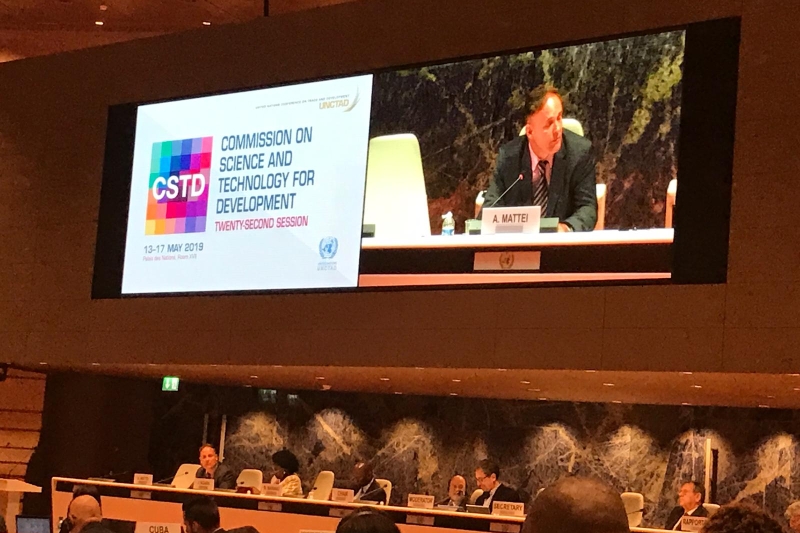
The Angolan Executive will provide the Science, Technology and Innovation (STI) sector with greater dynamism to stimulate the creation and dissemination of knowledge, capable of attracting and retaining talent for the country's development.
The information was revealed by the Minister of Higher Education, Science, Technology and Innovation, Maria do Rosário Bragança, during a Ministerial Round Table on “The role of science, technology and innovation in accelerating the recovery of COVID-19” and the “Full implementation of the 2030 Agenda for Sustainable Development at all levels”, reiterating that the intention arises from the need to strengthen and make the National Science System more efficient, in line with the Sustainable Development Goals and the African Strategy for STI.
The event that took place in Geneva, Switzerland, in the 26th session of the Commission on Science and Technology for Development (CSTD), Maria do Rosário Sambo defended the need to create greater synergy in cooperation for development with actors in national scientific systems and innovation ecosystems to strengthen the scientific capacity of human capital and institutions.
In her approach, the Minister stresses that Science, Technology and Innovation (STI) are key drivers for generating and sustaining increased productivity and, consequently, are vital long-term levers for economic growth and prosperity.
BUT: Angola presents the UN national report on innovation, technology and entrepreneurship
Maria do Rosário Sambo highlighted the COVID-19 pandemic as one of the elements that exposed the inability of many educational institutions, with special emphasis on higher education, to migrate to online education, and clarified doubts about the need for digital transformation of the education sector.
He said that the effects of the situation generated by the COVID-19 pandemic on Higher Education, with the consequent institutionalization of the State of Emergency, forced the questioning of current training practices, as well as the ways in which they ensure teaching-learning and how they should do it in the coming years. times.
He pointed to African countries such as Senegal, Tunisia and Côte d'Ivoire, where the existence, before the pandemic, of a virtual university mitigated the effects of the COVID-19 pandemic on face-to-face teaching, making it possible to put its experience at the service of other universities for the design of online training devices.







